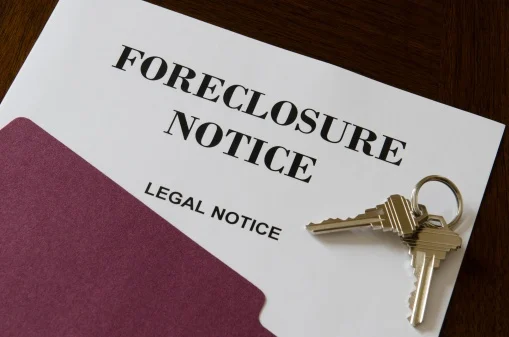How Much Are Attorney Fees for Foreclosure Reinstatement ?
Foreclosure is a challenging and stressful experience for any homeowner. In fact, recent statistics reveal that millions of families face foreclosure each year, with many struggling to navigate the legal and financial complexities involved. Imagine a family on the brink of losing their home, desperately searching for a solution—this emotional and financial turmoil underscores the importance of understanding your options, including foreclosure reinstatement. When the possibility of losing a home becomes a reality, many individuals turn to foreclosure reinstatement to save their property. This process, however, often involves legal expertise, which raises the question: How much are attorney fees for foreclosure reinstatement?
Understanding the cost of legal services is vital for homeowners navigating foreclosure reinstatement. This article provides a comprehensive breakdown of the factors influencing attorney fees, typical cost ranges, and other essential considerations.
What Is Foreclosure Reinstatement?
Before diving into attorney fees, it’s crucial to understand foreclosure reinstatement. Reinstating a foreclosure means bringing the mortgage current by paying overdue amounts, including missed payments, interest, and associated fees. Once the mortgage is reinstated, foreclosure proceedings are halted, and the homeowner retains ownership of their property.
Foreclosure reinstatement typically occurs before the sale of the property in a foreclosure auction. The process requires timely action, detailed financial analysis, and sometimes negotiation with lenders—all areas where an attorney’s expertise proves invaluable.

Why Hire an Attorney for Foreclosure Reinstatement?
Navigating foreclosure reinstatement can be complex. Here are some reasons why homeowners often seek legal representation:
-
Understanding Legal Rights: Attorneys can clarify your rights as a homeowner and ensure you’re treated fairly during the reinstatement process.
-
Negotiating With Lenders: A skilled attorney can negotiate more favorable repayment terms or reduce penalties.
-
Preventing Errors: Legal documents and calculations involved in foreclosure cases are detailed and require precision.
-
Challenging Unfair Practices: If lenders engage in predatory or unfair practices, an attorney can take legal action to protect your interests.
Factors That Influence Attorney Fees
Attorney fees for foreclosure reinstatement vary widely due to several influencing factors. Understanding these elements helps homeowners anticipate costs and make informed decisions.
1. Complexity of the Case
-
Straightforward Cases: A simple case might involve catching up on missed payments and negotiating directly with the lender for a repayment plan. For instance, if a homeowner missed two payments but has no disputes with the lender, the attorney’s job is relatively straightforward, keeping costs lower.
-
Complex Cases: On the other hand, complex cases—such as those involving lender misconduct or discrepancies in the foreclosure process—require more time and legal expertise. For example, if a lender improperly calculated late fees, the attorney may need to file a motion or initiate legal proceedings, which adds to the cost.
2. Attorney’s Experience
-
Experienced attorneys charge more due to their expertise. For instance, an attorney with decades of foreclosure reinstatement experience might charge higher fees than a newly licensed attorney. However, their proficiency often results in faster resolutions and potentially more favorable outcomes.
3. Geographic Location
-
Attorney fees are influenced by the cost of living in the area. For example, hiring an attorney in urban centers like New York or Los Angeles could cost more compared to rural areas due to higher living expenses and market demand.

4. Billing Structure
-
Some attorneys offer a flat fee arrangement, which covers all services related to foreclosure reinstatement. This might be ideal for homeowners who want cost predictability. Conversely, attorneys charging hourly rates, which typically range from $150 to $500 or more, might be suitable for cases requiring extensive negotiation or court appearances. For instance, an hourly rate attorney handling a dispute over a lender’s mismanagement of escrow funds could accumulate more fees depending on case duration.
5. Additional Services
-
Additional services, such as filing for bankruptcy to halt foreclosure or pursuing litigation against the lender, will naturally increase fees. For example, if the lender has violated fair lending practices, the attorney may need to gather evidence, draft legal arguments, and attend court hearings—all contributing to higher legal costs.
6. Scope of Representation
-
Some homeowners may require only limited legal assistance, such as reviewing documents, which reduces costs. Others may need full representation, including attending court hearings or negotiating complex terms, which increases expenses. For instance, a homeowner seeking help drafting a reinstatement letter will pay significantly less than one requiring courtroom advocacy.

Typical Attorney Fee Ranges for Foreclosure Reinstatement
While fees can vary widely, here are some general cost estimates:
Flat Fees
-
Simple Reinstatement Cases: $1,500 to $3,500
-
Moderately Complex Cases: $3,500 to $7,500
-
Highly Complex Cases: $7,500 and above
Hourly Rates
-
Attorneys may charge $150 to $500 per hour, depending on their experience and the market in your area. Total costs will depend on the number of hours required to resolve the case.
Additional Costs
-
Court Filing Fees: If your case requires court intervention, filing fees typically range from $200 to $500.
-
Administrative Fees: Charges for document preparation, courier services, and other administrative tasks may add $100 to $500 to the total bill.
How to Reduce Attorney Fees
Legal representation is essential, but there are ways to minimize costs:
-
Research Attorneys: Compare multiple attorneys and request fee estimates before hiring.
-
Opt for Flat Fees: A flat fee arrangement provides clarity and avoids unexpected expenses.
-
Negotiate Payment Plans: Some attorneys offer payment plans to make their services more affordable.
-
Organize Your Documentation: Providing all necessary documents upfront can reduce the time your attorney spends on your case.

Alternative Options for Homeowners
If attorney fees are a concern, consider these alternatives:
HUD-Approved Housing Counselors
-
The U.S. Department of Housing and Urban Development (HUD) offers free or low-cost housing counseling services. Counselors can help negotiate with lenders and provide guidance on reinstatement options.
Pro Bono Legal Services
-
Nonprofit organizations and legal aid societies may provide free legal representation for homeowners facing foreclosure.
Self-Negotiation
-
In less complex cases, homeowners can work directly with their lenders to negotiate reinstatement terms. While this approach saves on attorney fees, it’s riskier without legal expertise.
Why Attorney Fees Are Worth the Investment
While attorney fees can be significant, they are often a worthwhile investment. A skilled attorney can:
-
Prevent costly mistakes that could jeopardize your home.
-
Save money by negotiating reduced penalties and fees with lenders.
-
Provide peace of mind during a stressful time.
Homeowners must weigh the potential benefits of legal representation against the costs. In many cases, the long-term financial and emotional benefits of hiring an attorney far outweigh the upfront expense.
Steps to Take When Hiring an Attorney
-
Consult Multiple Attorneys: Schedule consultations to discuss your case and compare fees.
-
Check Credentials: Verify the attorney’s qualifications, experience, and reputation in handling foreclosure cases.
-
Review the Fee Agreement: Ensure the agreement clearly outlines the attorney’s fees and billing structure.
Conclusion
Attorney fees for foreclosure reinstatement can vary depending on the complexity of the case, the attorney’s experience, and other factors. On average, homeowners can expect to pay between $1,500 and $7,500 or more for legal representation. While the cost may seem daunting, investing in a qualified attorney can increase your chances of successfully reinstating your mortgage and avoiding foreclosure.
If you’re facing foreclosure, don’t hesitate to seek professional legal advice. The right attorney can guide you through the reinstatement process, protect your rights, and help you keep your home.
Leave a Reply